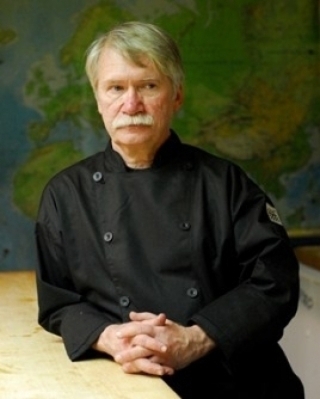Well, here we are – another year, another opportunity to impact the careers of countless culinary students and change the world of food. Does this sound like a daunting task? This is what we do, or what we attempt to do, every year. It is our responsibility and the reason why we teach.
Getting everyone on the same page can be challenging and finding the motivating principle that guides faculty and students along the way to success is a great start. As a suggestion, here are my overriding thoughts for 2025/26:
Make excellence your foundation and keep mediocrity off the table
If you believe, as I do, that excellence is never a destination but rather a way of existing, then the learning curve will not be insurmountable and the challenges less daunting. Excellence should not be reserved for the final semester in a student’s degree program. It should not be set aside for advanced classes only. Excellence should not be a Garde Manger thing or something sophomores or seniors seek to reach for. Excellence should and could begin on day one. Make it your over-riding principle, a way to approach everything, not an eventual outcome.
Think about it. When mediocrity no longer has a place at the table, then everything can and will change. Attitudes will change, expectations will change, opportunities will flourish, pride will consume all, and results will be extraordinary. Make excellence the expectation, not the exception. Live it, talk about it, show it, experience it, and be the glowing example of it. Don’t accept anything less from your faculty, your students, or yourself.
So, what does this look like?
Appearance
- Make uniforms an example of excellence and inspect for that outcome. Complete, clean, pressed, and worn with pride.
- Personal hygiene is impeccable.
- Submitted work is clean, complete, and professionally presented.
Sanitation
- When excellence is the standard there is no such thing as a deep cleaning day. Every day involves deep cleaning as a habit.
- Every person becomes the standard-bearer of food safety and sanitation. Coolers are always pristine with labeling, dating, and FIFO rotation practiced as a habit needs no reminder.
Lesson plans
- It is expected that faculty members be fully prepared, rehearsed, up-to-date, and able to effectively communicate class materials. They also must be able to assess that stakeholders “get it.” In a school where excellence is the standard, there is little need to validate that this happens – it is the accepted habit.
Homework
- The same expectation of excellence applies to work outside of class. No one should ever question the expectation of excellence in homework. Completed, on time, properly presented and spelled, and ready for presentation. Outside work is just as important as what takes place in the classroom.
Interactions
- When excellence drives everything, then how students interact with each other, how faculty interact, and how everyone interacts with guests is as professionals. ALWAYS. This is the expectation.
Tools
- An excellent kitchen knows how important tools are and they are to be treated with respect and maintained properly. This begins with student knives and continues with all cooking equipment in the kitchen. It is the way members of the kitchen team approach their job.
Mise en place
- Why do we score mise en place? It is one of the most important standards for a cook. Be prepared, everything has a place, and everything is in its place. Expect it, demand it, and get beyond measuring degrees of effectiveness. Everyone’s mise must be impeccable.
Plate presentations
- Why wait for advanced classes to start considering how the plate of food looks? Teach design and presentation from day one and set the standard for the visual aspect of cooking.
Execution of cooking methods
- Once again, why do we measure adherence to cooking methods? It’s either correct (excellent), or not (mediocre). There is no deviation in an operation that sees excellence as its foundation.
Critique
- Critiques are not a chance to tear down or point out mistakes but rather a chance to collectively determine how good can become great and great can jump to excellent. Make your critique model interactive and educational, not destructive and demeaning. When excellence prevails here then students will welcome the critiquing step.
Now, I realize this may not happen overnight – it will take time to build an environment of excellence. However, once the model is in place it will self-perpetuate because it is simply the way we do things.
PLAN BETTER – TRAIN HARDER – DON’T ALLOW MEDIOCRITY TO WIN
Paul Sorgule, MS, AAC, president of Harvest America Ventures, a mobile restaurant incubator based in Saranac Lake, N.Y., is the former vice president of New England Culinary Institute and a former dean at Paul Smith’s College. Contact him atThis email address is being protected from spambots. You need JavaScript enabled to view it..
